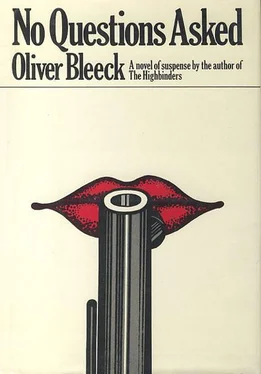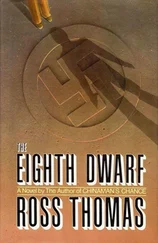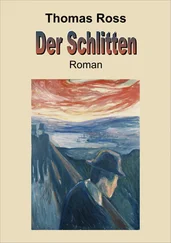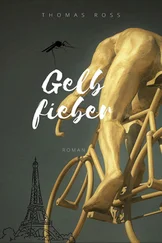Ross Thomas - No Questions Asked
Здесь есть возможность читать онлайн «Ross Thomas - No Questions Asked» весь текст электронной книги совершенно бесплатно (целиком полную версию без сокращений). В некоторых случаях можно слушать аудио, скачать через торрент в формате fb2 и присутствует краткое содержание. Город: New York, Год выпуска: 1976, ISBN: 1976, Издательство: William Morrow, Жанр: Детектив, на английском языке. Описание произведения, (предисловие) а так же отзывы посетителей доступны на портале библиотеки ЛибКат.
- Название:No Questions Asked
- Автор:
- Издательство:William Morrow
- Жанр:
- Год:1976
- Город:New York
- ISBN:978-0-688-03011-7
- Рейтинг книги:3 / 5. Голосов: 1
-
Избранное:Добавить в избранное
- Отзывы:
-
Ваша оценка:
- 60
- 1
- 2
- 3
- 4
- 5
No Questions Asked: краткое содержание, описание и аннотация
Предлагаем к чтению аннотацию, описание, краткое содержание или предисловие (зависит от того, что написал сам автор книги «No Questions Asked»). Если вы не нашли необходимую информацию о книге — напишите в комментариях, мы постараемся отыскать её.
Interestingly, the owner of the book, PI Jack Marsh, has been kidnapped as well. St. Ives soon finds himself involved in a deadly game of deception and murder.
No Questions Asked — читать онлайн бесплатно полную книгу (весь текст) целиком
Ниже представлен текст книги, разбитый по страницам. Система сохранения места последней прочитанной страницы, позволяет с удобством читать онлайн бесплатно книгу «No Questions Asked», без необходимости каждый раз заново искать на чём Вы остановились. Поставьте закладку, и сможете в любой момент перейти на страницу, на которой закончили чтение.
Интервал:
Закладка:
“You use it to go camping in?” I said.
Guerriero shrugged as he closed the door. “Sometimes,” he said. “Sometimes when I’m broke I live in it. They’re handy for a lot of things.” He grinned again. “I guess that’s why they sometimes call them fuck trucks.”
I felt even older as I went around the van and got into the passenger’s seat. Guerriero slid behind the wheel, started the engine, and backed out.
“I need someplace to stay,” I said.
“You want a hotel or a motel?”
I thought about it. “A motel, I think.”
“There’s a small one on La Brea that’s pretty good,” he said.
“Okay.”
Past the airport, Guerriero got on to the San Diego freeway going north and then switched to the Santa Monica freeway and we went east for a while. He drove the way that a lot of Californians drive, with smooth, easy motions and careful attention to the rear-view mirror.
On La Brea we went north for almost a mile and then turned into what was called the Riverside motel, although I had seen no evidence of a river anywhere. It was a typical cinder-block affair, painted blue and run by a tired-looking man in his fifties whose only question was whether I’d be staying more than one night. When I said that I would, he seemed mildly pleased. At least he smiled a little.
Guerriero carried my bag into the motel room and helped me inspect the bath and the bed. There was one of each and everything looked fairly clean and fairly new and about as cozy as a hospital room.
“Is it okay?” he said.
“It’s fine.”
“What time do you want me to come by tomorrow?”
“Make it about nine-thirty.”
“Where do you think we might go?”
“I’m not sure yet,” I said. “Why?”
“No reason. Just curious.”
“I’ll know by nine-thirty.”
“Okay,” he said and started for the door. He paused and said, “Well, have a good night,” and then he was gone.
I unpacked my bag and then fixed a drink. I drank it sitting there in a chair that was covered in lime green plastic. There must be far lonelier spots than a cheap motel room in a strange city after midnight, but just then I couldn’t think of any.
12
It was warm the next morning, warm for me anyhow, about 60 degrees and cloudy. I had a mediocre breakfast in a coffee shop that I found across the street. When I came back to the motel I called Max Spivey. He wanted to know where I was staying and where I planned to start.
“I thought I’d talk to Maude Goodwater first,” I said.
Spivey was silent for a moment. “I suppose that would be all right.”
“Why wouldn’t it?”
“She’s still pretty upset because of Jack Marsh.”
“I have to start somewhere.”
“She’s had to talk to a lot of people in the last few days. We’ve talked to her. The cops have talked to her. I don’t think she really wants to talk to anybody else.”
“I’ll try to be both polite and brief.”
There was another silence that lasted a few seconds before Spivey said, “Okay. I’ll give you her address and phone number.” He read off the phone number and I wrote it down. The address was on Malibu Road. “You know where that is?” he said.
“No, but I’ll find it.”
After Spivey hung up, I looked at my watch. It was 9:15. I wondered if Maude Goodwater would be up yet and decided to find out. She answered the phone on its third ring. She had a low, quiet voice over the telephone. I told her who I was and why I wanted to see her.
“Were you there?” she said.
“Where?”
“In Washington when Jack was killed?”
“Yes. I was there.”
There was a silence. I seemed to be running into them that morning. Then she said, “Will you tell me about it?”
“If you’d like me to,” I said.
“Yes, I think I would. Where are you staying?”
“At a motel on La Brea.”
“Why don’t we make it eleven o’clock?”
I told her that eleven would be fine, listened to her directions, and then hung up. After that I sat in the lime green plastic chair and read the Los Angeles Times for a while. There was an interesting article about some coyotes that had found their way into Beverly Hills and were causing all sorts of fuss.
When the knock sounded at the door I looked at my watch. It was 9:30. I opened the door and it was Guerriero, wearing a blue shirt, white duck slacks, and loafers. He was also carrying a white paper bag.
“I brought some coffee in case you hadn’t had any,” he said.
“I can use some more,” I said. “Come in.”
He came in and took two coffee containers out of the paper sack. “How do you take yours?” he said.
“Just sugar.”
He ripped open a small packet of sugar, dumped its contents into one of the coffees, stirred it, and handed it to me.
“Thanks,” I said. “How far is it to Malibu?”
“This time of day, about thirty or thirty-five minutes. Maybe less.”
“We can make it by eleven?”
He nodded. “No problem. We can even take the scenic route. It’s slower, but if you don’t have to be there until eleven, we’ve got plenty of time.”
“What’s the scenic route?”
“Sunset Boulevard all the way to the beach. Or we can take the Santa Monica freeway. Another way is to take Wilshire out to San Vicente. That’s pretty quick, too, if you don’t like freeways.”
“Let’s try Sunset,” I said.
Sunset Boulevard hadn’t changed much since I had last seen it a few years back. It looked a little more seedy perhaps, and the colors might have turned a bit gaudier. You could still get a massage, if you wanted to, or look at some all-nude girls, or have your fortune told, or buy a secondhand Rolls, or even get something to eat and a place to sleep. At the end of the Strip was something new, two tall black glass buildings that had a gloomy, brooding look about them that made me think of twin sentinels who had been posted there to make sure that the gamier backwash of the Strip didn’t slop over into the residential section of Beverly Hills.
It was spring in Beverly Hills and in Bel Air and in Brentwood and I decided that, all things considered, it must cost at least five dollars just to grow a daisy there. As we drove past I admired some of the architectural efforts, which would have looked more at home in Virginia or Cape Cod or maybe somewhere south of Paris. But each of them was home to somebody and, as always, I wondered what it was that the people who lived in them sold or produced or provided and whether they felt just a bit uneasy about it all.
Sunset twisted and curved and dipped and rose and dipped again on its way down to the sea. Guerriero kept the van at a steady forty-five, even on the trickier curves, and we slid around them nicely.
As we went past the east gates to Bel Air he jerked a thumb at them. “If we ever have a fuckin’ revolution in this country, that’s where it’s going to start,” he said.
“You think so?”
“Yeah. UCLA’s right next door, you know, so all you have to do is get the crazies there all fired up. Then the blacks and the Chicanos will come sweeping in from east L.A. and they’ll just burn the goddamned place down.”
“When do you think it’ll happen? The revolution, I mean.”
Guerriero shrugged. “Not soon. Things aren’t bad enough yet. They’re going to have to get real bad, like in the thirties, or worse.”
“Where’re you going to be when it comes,” I said, “on the barricades?”
He gave me a hard, crooked grin. “Out of town,” he said.
The Pacific Ocean was grey that day, not blue, and the long heavy swells rolled in and pounded themselves flat on the beach. Some seagulls were out investigating the possibilities for lunch while a number of self-important sandpipers trotted briskly up and down at the edge of the surf, making sure not to get their feet wet. A solitary stroller, his head bent, worked his way down the beach, stopping now and then to kick at something maybe strange and wonderful that lay half buried in the sand.
Читать дальшеИнтервал:
Закладка:
Похожие книги на «No Questions Asked»
Представляем Вашему вниманию похожие книги на «No Questions Asked» списком для выбора. Мы отобрали схожую по названию и смыслу литературу в надежде предоставить читателям больше вариантов отыскать новые, интересные, ещё непрочитанные произведения.
Обсуждение, отзывы о книге «No Questions Asked» и просто собственные мнения читателей. Оставьте ваши комментарии, напишите, что Вы думаете о произведении, его смысле или главных героях. Укажите что конкретно понравилось, а что нет, и почему Вы так считаете.












